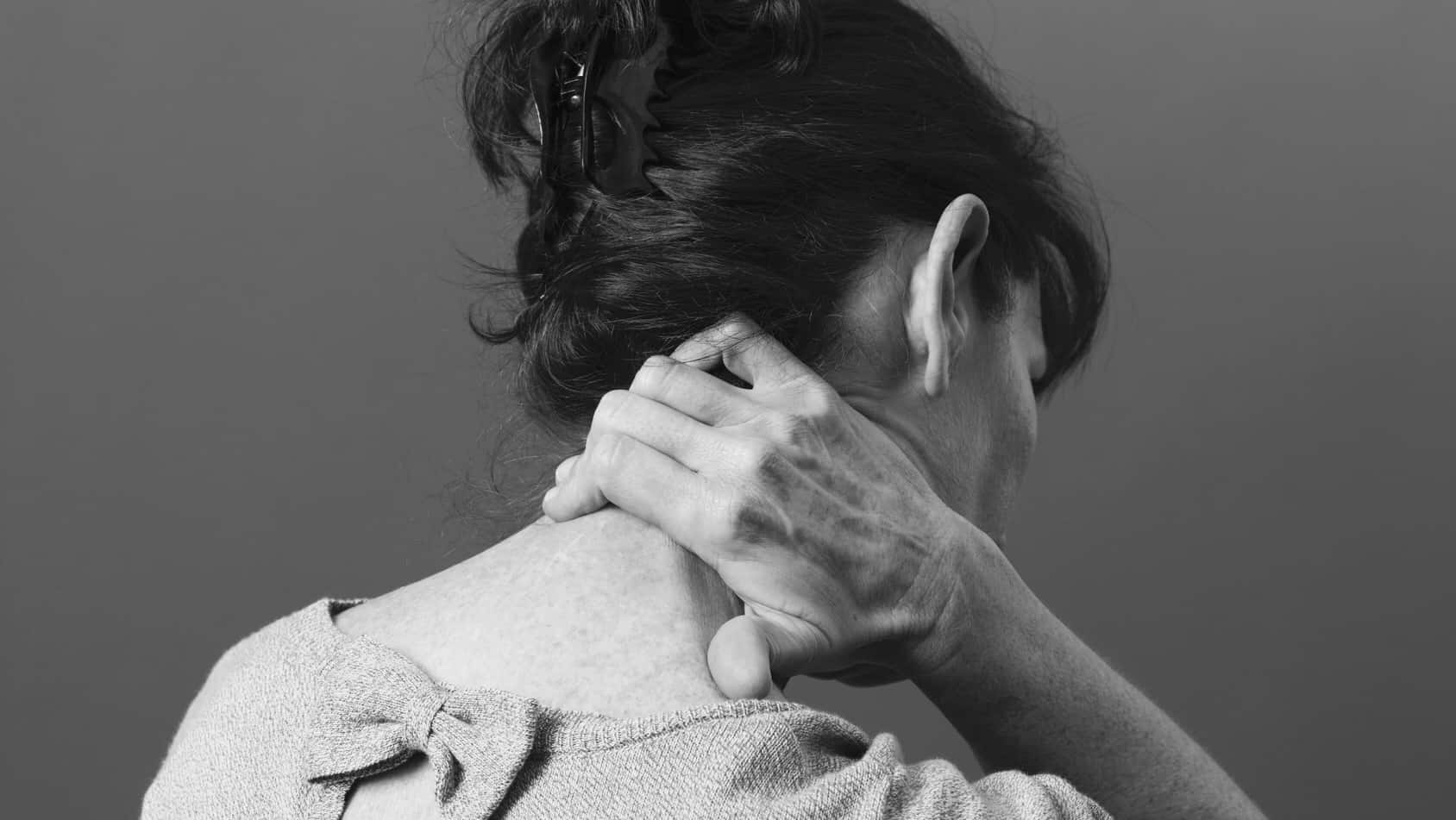Stress can come from many different sources and can even be a matter of how we perceive the events that shape our daily lives, but beyond that, it is often a hidden health hazard that can cause stress sickness.
Our immune system kicks into high gear when it senses a ‘threat,’ and it knows there is a threat invading our body by our emotional response to what is happening. If we can control our response to stressful events, we can help ourselves to be healthier.
Your body is sending up smoke signals and telling you to find healthy ways to manage the stress in your life because failing to do so is slowly making you sick. This article will look at the eight often hidden signs of stress and how it can make you sick.
8 Stress Sickeness Is Making You Sick
To prevent yourself from having these stress-related health problems and a lower immune system response when dealing with stress, look for ways to calm down. What works is different for everyone, so that meditation may be your go-to solution, but a vigorous workout with energetic music may work for someone else. Play around with various activities until you feel that ‘ah!’ release that you need to rid yourself of the poison of stress.

1. Your memory is failing you
Stanford researcher and neuroscientist Robert Sapolsky have studied primate brains and the biological responses to stress. He says that stress leads to deterioration of the hippocampus, an area of the brain that is crucial to memory. In an article published in Science, Sapolsky argues that ‘the underlying causal agent may be glucocorticoids secreted in abnormally high amounts under stressful conditions.’
As a result, your brain is slower than usual when processing information when you are under stress. It’s as though stress gives you early signs of dementia, and although these are not permanent, they certainly are hidden signs of stress.
2. Head pain
Headaches are a fairly common sign of stress, but the frequency and severity of your headache pain can be a hidden sign that stress makes you sicker than you know. If you have a headache more often than once every few months and it is not related to drinking too much alcohol, you may be a symptom of handling stress poorly.
3. You have digestive problems
Acid reflux, upset stomach, gas, and bowel disorders are just some of the signs that stress is making your body sick. The cortisol that surges in your body in response to a stressful event is helpful to us if we have to flee from a tiger. Still, it shuts down the digestion of our food so that our body has energy that it might need to fight or run from the imaginary tiger.
When we respond with frustration to a traffic jam, for example, our bodies perceive that we are in a state of heightened emotions, and it diverts energy away from our digestive system as a result.
4. Weight changes
You are happy to be losing weight, but the weird thing is that you haven’t changed your diet or added any cardio exercise, so what’s going on? Your body is responding to stress by revving up your metabolism due to the fight or flight surges of cortisol in your body. If you tend to overeat when stressed, you will see the opposite effect on your weight.
5. Your relationships are suffering
Stress from harmful and unhealthy relationships can lead to health problems, which can make you tend to avoid spending time with the people who create negativity. Researchers studying stress and health symptoms in college students found that ‘Negative social exchange accounted for more variance in physical health symptoms than life-event stress, daily hassles, or social support.’ In other words, even having good, healthy relationships can’t outweigh the effects that a bad relationship can have on your level of stress and your health.
6. Itchy or red skin can come from stress sickness
Your skin can sense specific environmental stressors like toxins, but it also is one of the first organs in your body to show you that you are experiencing hidden stress in your body. Redness, itchiness, bumps, and hives are all signs that you feel like jumping out of your skin. Managing the stress will help the symptoms to clear up.
7. You feel like pulling your hair out, but it’s falling out without you doing anything
Hair loss is another hidden sign that stress is making you sick. We usually lose a small percentage of our hair each time we brush or comb it, but if you notice a larger amount than usual is coming out, it is likely due to stress. Again, your body is shutting down the healthy systems that build new cells, including your hair, to divert energy to battle the pressure or threat that you are dealing with in your life.
8. You quickly get sick
Reduced immunity is a surprising hidden effect of chronic stress. Your body is less effective at fighting off bacteria and viruses because it’s already fighting an internal battle and readying itself for the fight that it thinks is coming because you’ve tricked it into thinking there’s something to be worried about.
9. Cardiac issues
You’ve probably heard that stress can affect your heart, as it has a dramatic impact on your cardiac function. Stress makes the hormone cortisol increase, which can cause your blood pressure to rise and your heart to race.
Prolonged elevated levels of these hormones can cause heart disease, a stroke, or heart attack. If you’re under severe stress and feel a tightness in your chest and your heart is skipping beats, you need to be evaluated.
10. Depression, panic, and anxiety
One of the significant concerns with stress sickness is that it can cause mental health issues. The same elevated levels of cortisol that cause a problem with your heart can also mess with your emotional wellbeing. You may notice that you have less energy to do the things you once loved, and you feel uptight about being in crowds or even leaving your home.
While anyone can feel down in the dumps, depression can easily slip in when your mood stays down for too long. The good news is that there are many effective treatments for depression, anxiety, and panic disorder, and you don’t have to live this way.
11. Muscle and joint pain
Stress causes the muscles and joints to become stiff and tense. The trapezoid is the most impacted muscle when you’re stressed out, and it’s located from the occipital bone to the lower thoracic vertebrae in your back. It can cause your neck and entire back to have spasms and ache.
If you have an underlying condition like fibromyalgia or arthritis, it can cause these conditions to flare and make your pain levels intolerable. The American Psychological Association states that your muscles will tighten when you’re under stress, but they will relax when the stressors are gone.
Stress can affect you from head to toe, so it’s essential to strive to keep stress sickness at bay so you won’t be miserable each day.
12. Reduced fertility
The CDC defines infertility as anyone who’s tried to conceive unsuccessfully for 12 months or longer. Did you know that stress sickness can impact your ability to have a child? Not only can the increase in cortisol in your body mess with the menstrual cycle, but it can cause a lower sperm count in men.
There are numerous physiological mechanisms at play here, but when the body is in flight or fight mode, it takes away vital nutrients from the non-essential functions. Your body is doing all it can with the increased stress load to keep your heart, lungs, brain, and other vital parts going, so it has fewer resources to assist with things like your fertility.

13. Withdrawal from social interactions
Stress sickness can make you feel like an entirely different person, and doing the things you once loved can be challenging. You may withdraw from social interactions as you don’t feel like getting out and mingling. Isolation is a sign that your mental health is being affected, and it shouldn’t be ignored.
It’s not healthy to stay behind four walls, and if you feel it’s all you can do to take a shower and make it to work each day, you need to find effective ways to reduce your mental load.
14. Your hair turns gray
It might seem far-fetched to think that stress sickness can cause grey hair, but science has shown that it’s possible. It has to do with your sympathetic nervous system, and it’s the one that kicks into high gear when you’re in fight or flight mode. This adrenaline-rushed state has a direct impact on your stem cells.
Now, the stem cells are what help with hair pigment, so it’s possible that your hair can turn gray because of being under too much stress. According to the National Library of Medicine, a study was conducted by Harvard to see if this was all hype. They used mice exposed to different levels of stress, which were mild, short-term, and psychological.
Researchers found that all the mice had hair graying caused by the melanocyte stem cells and their lack of function. They established a definitive link between stress and the graying process. Sadly, once the hair turned gray, altering the cortisol levels in the body and enhanced stem cell nutrients didn’t change the hair back to its original color.
15. Increased sensitivity to pain
When you have increased pain sensitivity, you have a condition called hyperalgesia. The same accident will hurt the person under stress way worse than the person who isn’t in this heightened state. It’s all caused by the nerve pathways in the body, which tend to have an overactive response when in pain.
These “pain” pathways have communication issues under stress, so they experience “crossed wires” in the central nervous system. It can be a significantly painful condition, and while other things can cause it, stress is one known factor.
7 Ways to Reduce Stress Sickness
Life is hectic, so you need to find effective ways to reduce your stress levels to stop it from turning into a full-blown sickness. How often have you heard that you need to reduce your stress, but you’re not sure how to do it? Here are a few simple tricks that you can apply to your life to take control and reduce those cortisol levels.
1. Move your body to offset stress sickness
You can’t fight stress by sitting on the couch and not moving. Your body needs exercise as it helps to get your feel-good chemicals flowing again. Try to get some exercise at least three times a week. You don’t need an intense cardio workout, as walking around the block is helpful. Do what you can do, and soon you will be able to do more and feel better.
2. Change your eating habits
If you want to feel good, you need to fuel your body with the proper nutrition. So many people who start diets like Keto or Paleo start feeling better mentally and physically because it cuts out processed and junk foods. When you’re eating healthy, you will feel better and be better equipped to fight stress.
3. Embrace mindful living
When’s the last time you took a walk in the park or stopped and listened to your child’s laugh? There are so many things each day that you take for granted, and these are the things that make life work. It would help if you had a healthy work-life balance to make time for the things that matter most.
4. Try yoga, meditation, or self-hypnosis
Stress is inevitable in life, but stress sickness occurs when you’re overloaded. You need to find healthy outlets to get rid of all that angst, and yoga, meditation, and self-hypnosis are just a few ways you can do this. You can’t always change your atmosphere, but you can change how you respond.
5. Learn to say “no.”
One of the most significant causes of stress is not knowing how to say no to people. Setting boundaries is essential for your mental and physical health. If you can’t fit one more thing into your day, don’t be afraid to stand up for yourself and tell people no.
6. Try herbal supplements
Balancing those mental chemicals in your brain can be challenging once they’re off-kilter, but you can look to nature to help in that process. Things like St. John’s Wart are very helpful in combating stress sickness. Other herbs like lavender can help calm you, and bergamot can help reduce the effects of your stress.
7. Try cognitive behavior therapy
CBT is also known as talk therapy, and it’s very beneficial to get what’s on the inside out. It would help if you had a healthy outlet to handle your stress. It would be nice if someone could wave a magic wand and all your troubles go away but learning how to use these healthy outlets can allow you to manage your stress better.

Final Thoughts on Beating Stress Sickness
The key to combating stress sickness is to delve into management techniques. Your long-term mental and physical health is imperative for your overall wellbeing. Sure, you don’t always have time to read a good book, take a three-hour nap, and climb a mountain, but you can make time for yoga, meditation, or spend with your loved ones.
Once your cortisol levels are elevated for long periods, it’s easy to become sick. So, it would help if you focused on ways to reduce these levels so that things can go back to normal. A life stressed and full of anxiety isn’t one that’s beneficial to you or anyone around you, but you do have the power to take control and manage your stress.

















